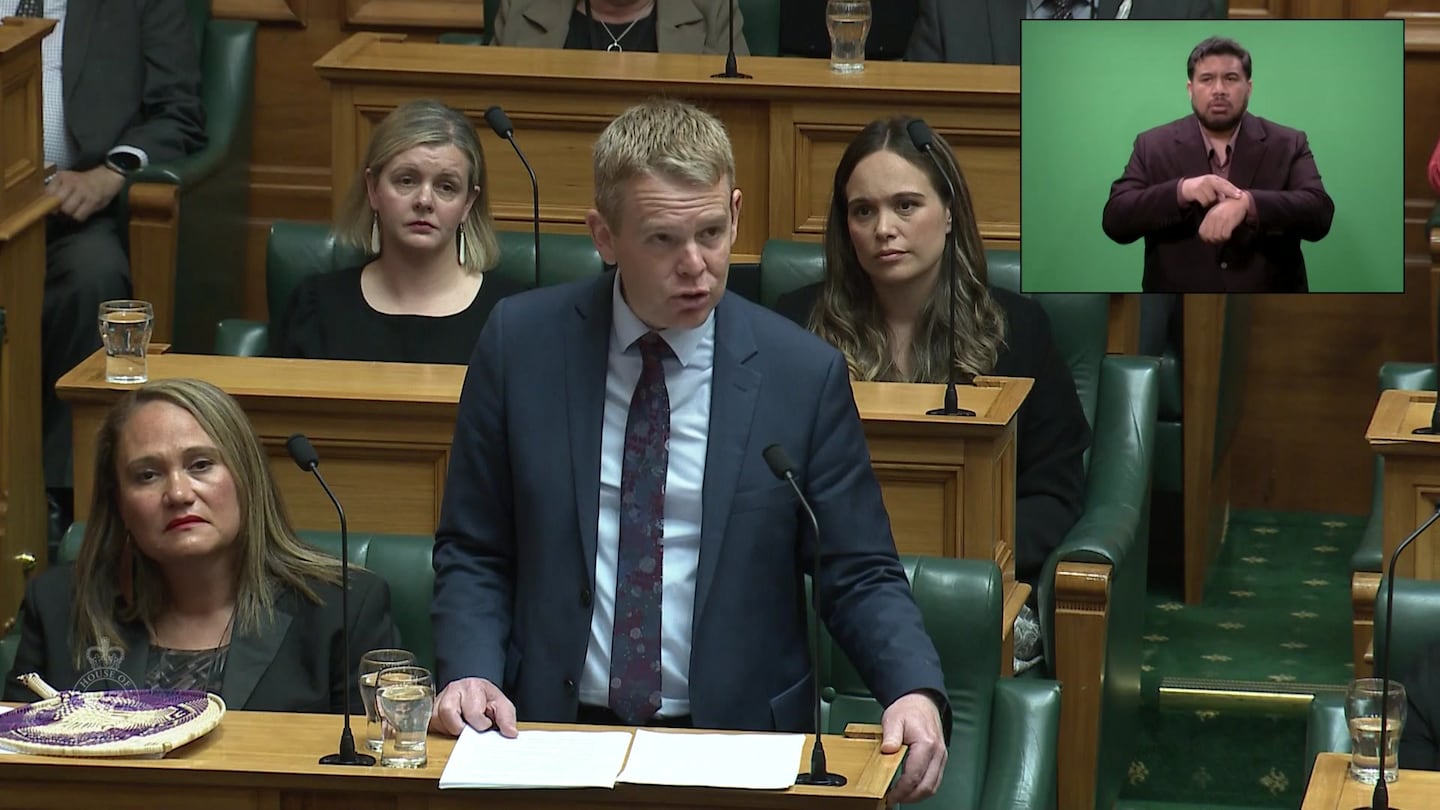“Today is a hugely important day for all of you to finally hear what the Crown has failed to give you for all these years. An apology.”
Labour leader and ex-prime minister Chris Hipkins said that in his formal apology to survivors of state and faith-based abuse. He delivered it straight after Prime Minister Christopher Luxon’s apology.
He began by acknowledging and supporting Luxon’s apology on behalf of successive governments “who have failed you, survivors, your families, your whānau, kainga, hapū, iwi, your communities and your support networks, and the nation as a whole.
“I want to acknowledge all of you – those who are physically here at Parliament today, those who are watching all across the country, those who find it too painful to engage at all, and those who have died before today finally arrived.”
He also acknowledged and apologised on behalf of all successive Labour-led governments for playing a role in the neglect, abuse, trauma and torture.
“They allowed the systems they governed to continue to place children, young people and vulnerable adults in care unnecessarily, and then to hurt them when they were there. When survivors tried to raise the alarm, representatives of Labour played a role in ignoring, punishing and shaming survivors – drowning them out so that they could never be heard.
“This was wrong.
“We apologise for ignoring you. For punishing you for speaking out. And for leaving you unsafe and unheard,” said Hipkins.
Overall, Hipkins said “sorry” three times.
“Today, I want to confirm that we hear you. We hear all of you. We are sorry we took so long, but we finally hear you.
“To each and every one of you who endured all that suffering, to your families, your children and mokopuna, your kāinga, your hapū, your iwi, your communities – we see your scars and we hear you. And we are sorry.
“You should have been safe, protected, and believed. You were not. And that is the ultimate injustice that we as representatives of the Crown must also bear the burden of.
“I am also sorry that the last Labour government did not act more quickly to put in place an independent redress system.
“We, the government, and representatives of the Crown, owe a huge debt to you.”
In his speech he spoke “frankly” of what happened to Māori, Pacific, Pākehā, Deaf, disabled, survivors who experienced mental distress, and takatāpui, mahu, vakasalewa, palopa, fa’afafine, akavai’ne, fakaleiti, fakafifine, and all rainbow survivors.
“I want you to hear that we have heard. That while we can never fully understand what these experiences were like for you, we have heard your testimonies.”
He shared parts of each of those communities' stories, including racism, ableism, homophobia, transphobia, and the challenges faced by those from lower socio-economic backgrounds.
“To those who shared your stories with the inquiry - thank you.
“To those who’ve chosen not to recount those memories - we wholeheartedly understand.
“To those who died before they were given the opportunity to be heard - rest knowing that you are heard today,” Hipkins said.
In Luxon’s speech, he outlined how the government planned to follow through on their apology by implementing new measures to protect children in the system today, such as stopping strip searches. He also pledged financial support for survivor networks and announced efforts to help authorities honour and care for unmarked graves at sites that were once places of care in New Zealand.
Hipkins welcomed and supported the government’s commitment.
“There’s so much to do, and this is a good start.”
Near the end of the speech, the Labour leader acknowledged that his words or those of the prime minister wouldn’t heal the wounds, but hoped they would bring some relief.
“I acknowledge that for some, perhaps many of you, there will never be healing. My hope is that this apology today offers some relief – that your fight to be heard has resulted in a formal apology.
“Now is the time to forge a new pathway forward.
“I hope that together we can achieve it for generations to come, never again repeating the mistakes of the past.”



